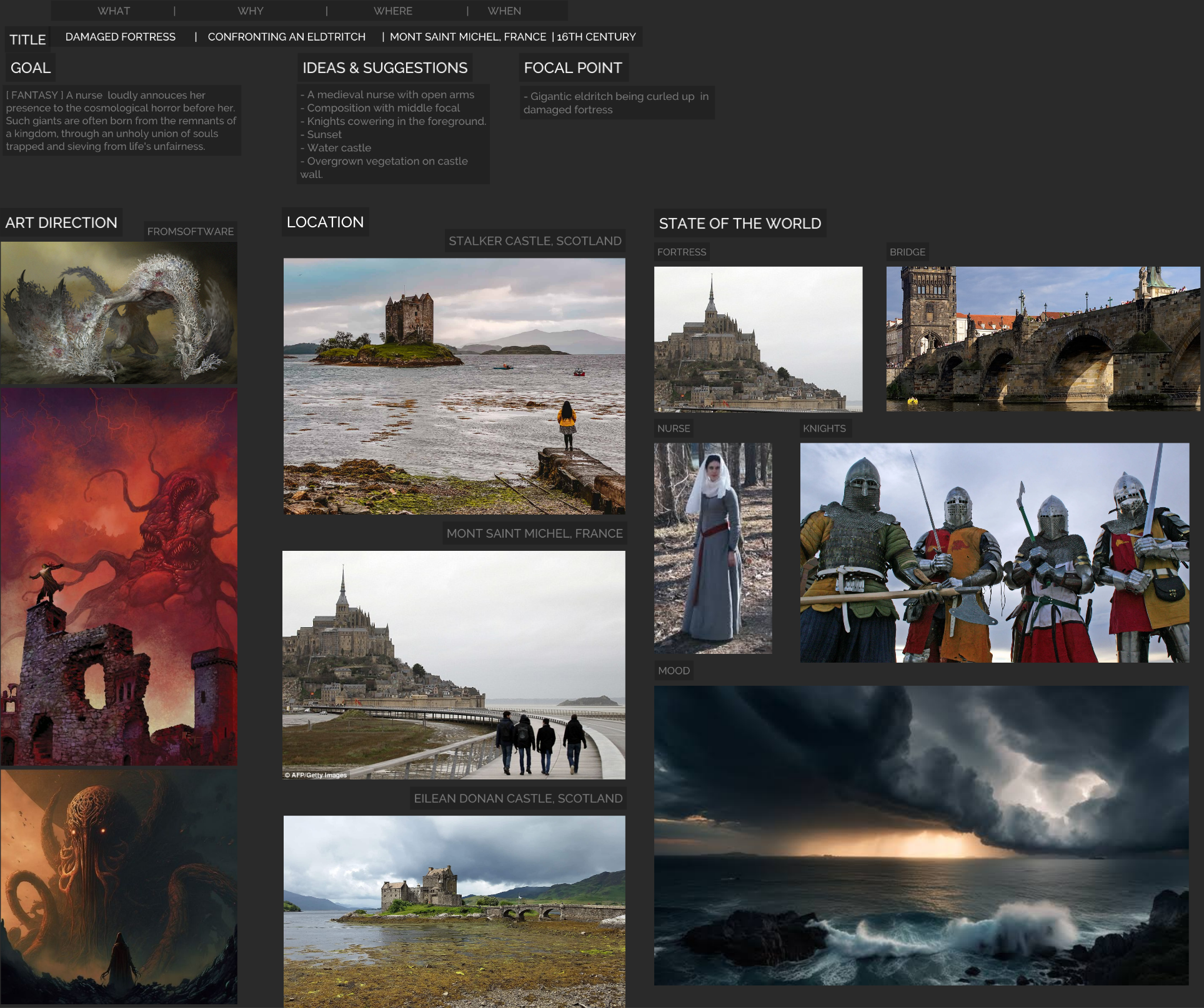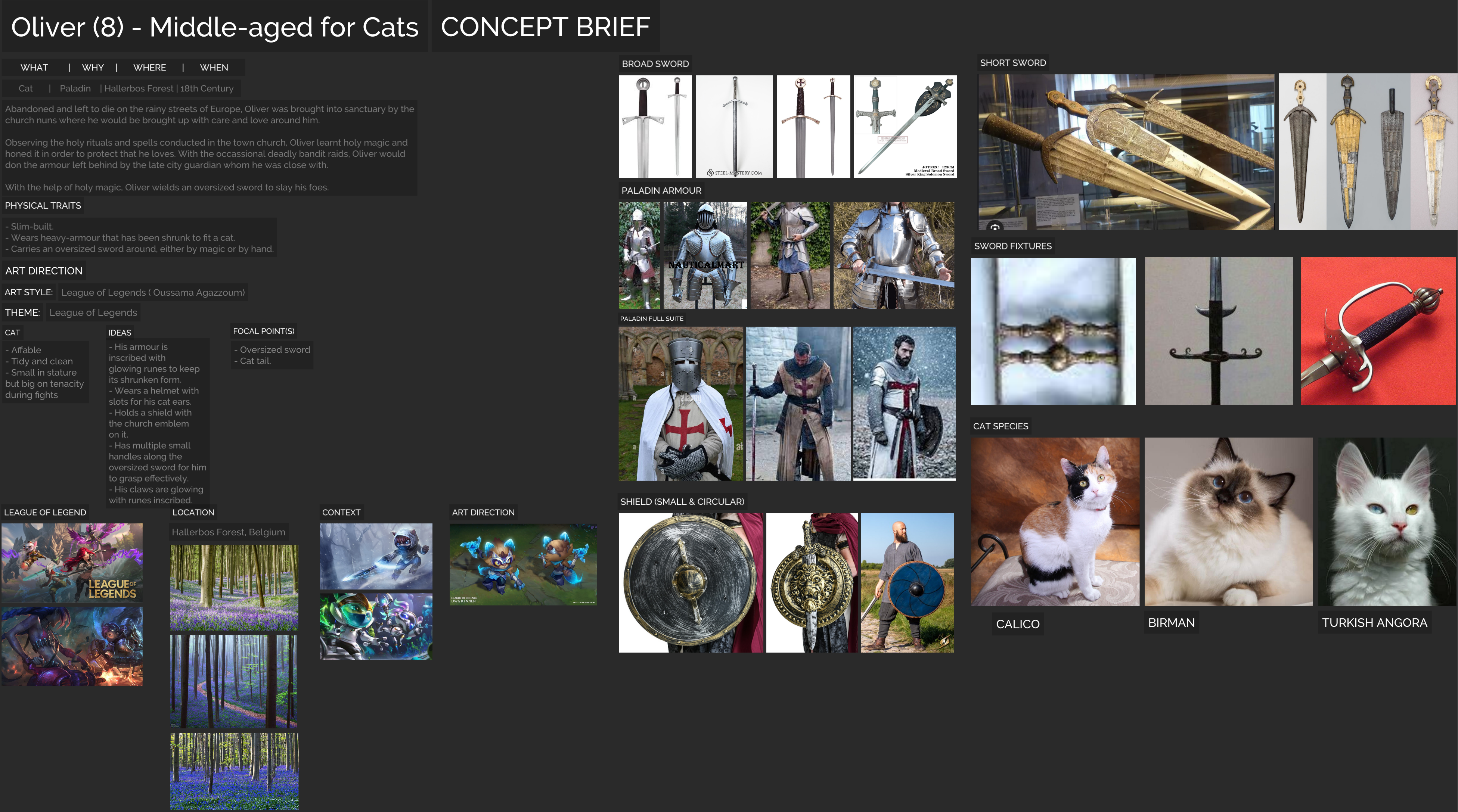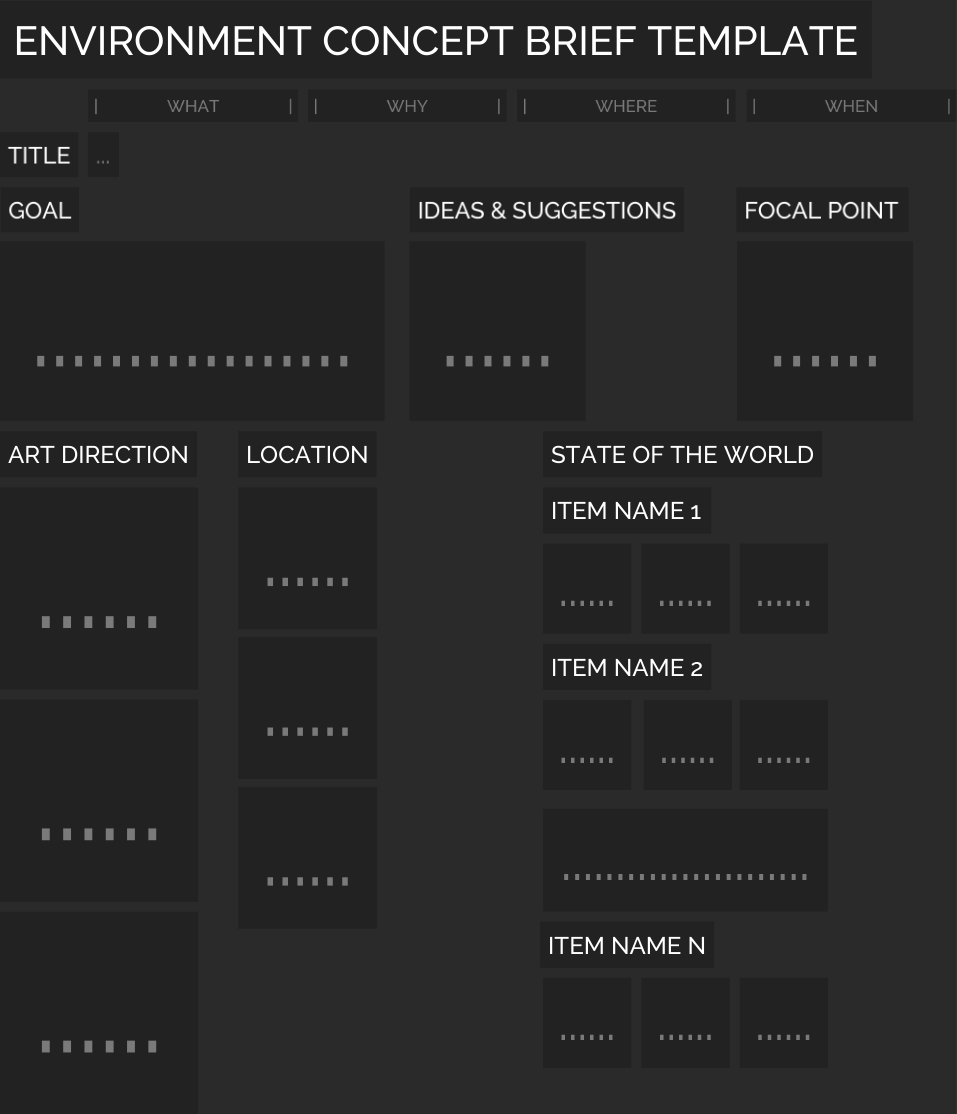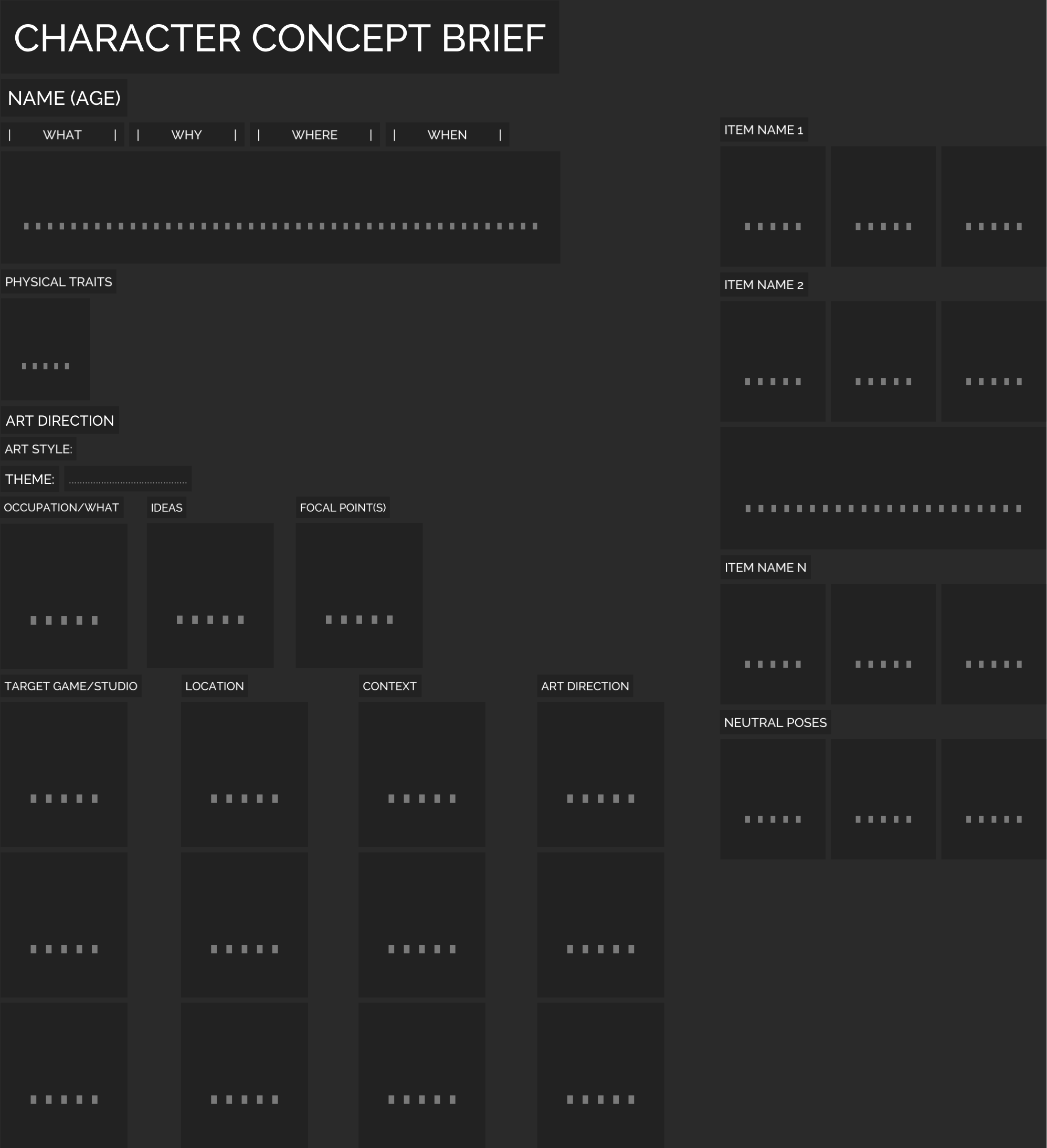How to Create A Concept Brief 🗺️
In this article, you can learn about an essential tool concept artists use in character and environment designs. Having learnt this directly from industry professionals, I would like to share it with others because concept briefs are inexpensive but extremely valuable techniques to minimize distractions given the current social media landscape as well as provide clear visualizations towards a desired end-goal as artists.
What’s a Concept Brief?
A concept brief is a document typically used in entertainment design (Eg. Video Games, Films, TV Shows) as a roadmap for creators, outlining the core idea, target audience, and desired mood for a fictional character or environment.
Here’s what an example of it looks like:
Environment Concept Brief 🖼️

Character Concept Brief 👤

Templates
Based on the examples provided above, here are the condensed templates you can download:
Environment Concept Brief 🖼️

Click here to download.
Character Concept Brief 👤

Click here to download.
Definitions
Environment Concept Brief 🖼️
1. WHAT, WHY, WHERE. WHEN
WHAT refers to the type of main structure in the environment you intend to render.
WHY refers to a event that could be happening in the environment you intend to render.
WHERE refers to a possible location you intend to render the environment in.
WHEN refers to the time period in which the environment is in. Eg. FUTURE, PRESENT, MEDIEVAL TIMES, POST-WW1
2. GOAL
This refers to a story that gives more in-depth details about what is happening in the environment.
3. IDEAS & SUGGESTION
This can include at least 5 things/ideas that the environment could contain.
4. FOCAL POINT
This refers to the focal point which you want viewers to see the most in the environment.
5. ART DIRECTION
This refers to the focal point which you want viewers to see the most in the environment.
6. LOCATION
This can include at least 3 possible real-life locations which the environment can be based on.
7. STATE OF THE WORLD
This includes only real-life photo references used for specific concepts/ideas/objects in the environment.
Always reference!
Character Concept Brief 👤
1. NAME(AGE)
This refers to a name of the character you have in mind as well as the age.
2. WHAT, WHY, WHERE. WHEN
WHAT refers to the type of main occupation/archetype of the character you have in mind.
WHY refers to a potentially contrasting trait in the character you have in mind.
WHERE refers to a possible location your character may be living or operating in.
WHEN refers to the time period in which the character is in. Eg. FUTURE, PRESENT, MEDIEVAL TIMES, POST-WW1
3. DESCRIPTION
This refers to a story that gives more in-depth details about the character and how he/she came to be.
4. PHYSICAL TRAITS
This can include at least 5 physical features that describe what the character should roughly look like.
5. ART STYLE
This refers to the visuals your character may be based off.
6. THEME
This refers to the specific game universe your character may reside in.
7. OCCUPATION/WHAT
This can include at least 5 occupational features that make your character unique and interesting.
8. IDEAS
This can include at least 5 general ideas that make your character unique and interesting.
9. FOCAL POINT(S)
This should include only one thing which you would like to direct viewers’ attention to on your character.
10. TARGET GAME/STUDIO
This should include at least 2 artpieces from the game/film you feel your character should be based off from.
11. LOCATION
This should include at least 3 possible locations your character may be living or operating in.
12. CONTEXT
This should include at least 1 art piece showing how the character is doing or what is happening around him/her.
13. ART DIRECTION
This should include at least 3 art pieces establishing the visual standards of the character.
14. STATE OF THE WORLD
This includes only real-life photo references used for specific concepts/ideas/objects of the character you have in mind.
Places To Source For References
- Pinterest - For General Resources
- Concept Art World - For Art Direction references from western artists.
- Creative Uncut - For Art Direction references from japanese artists.
- Artstation - For Art Direction references.
- character.ai - For generating possible character names and backstories automatically.